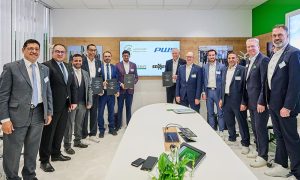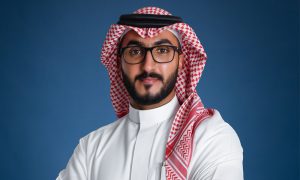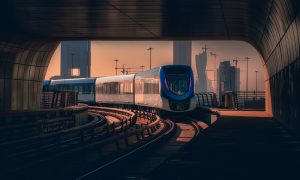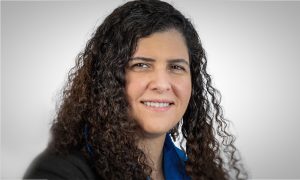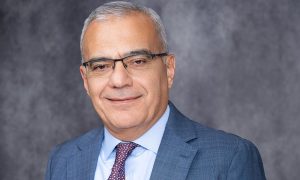Principles for success: Arabian MEP Contracting’s Vasanth Kumar
Kumar wants ‘customer focus and integrity’ to be his legacy
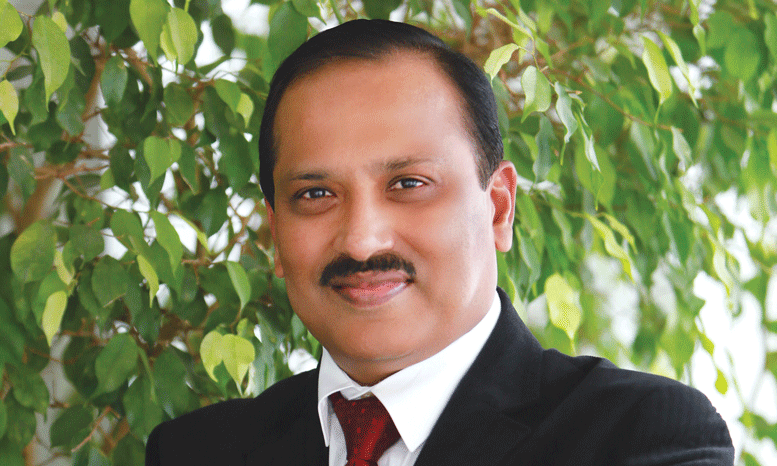
It’s often said that a leader should never ask someone to do something the leader wouldn’t do. When it comes to construction in the GCC, this is often forgotten, with certain construction firms guilty of pushing their crews and their staff to the absolute limit in the pursuit of profit and payment.
Luckily for Arabian MEP Contracting, their chief executive officer is someone who has been through the ranks and worked in the trenches. Hailing from Coimbatore in the Indian state of Tamil Nadu, Vasanth Kumar tells Big Project ME that one of the toughest periods in his life was also one of the most crucial, as it taught him to appreciate and understand the value of a happy, satisfied and appreciated workforce.
“I did my mechanical engineering degree at the Coimbatore Institute of Technology, and through the campus interviews I got a placement as a graduate engineer in training at India’s largest steel plant. I was put in as a quality control/assurance engineer, and within a few months I realised that it wasn’t my cup of tea,” he recollects during a telephone interview from his office in Doha, Qatar.
“I discovered that my area of interest was in project management. I wanted more thrills and challenges. I quickly quit the steel plant job within six months and joined another company that undertook HVAC contracts. I worked in a few Indian cities at that time – Mumbai, Chennai and Coimbatore – and within two years, I thought that it was time for me to move to the Middle East.
“So when I got an opening in Saudi Arabia, I joined a company there as an HVAC engineer at the very grassroots level, as a site supervisor. I was staying with the labourers, I was going along with them to work, eating with them, I lived with them for almost a full year, and even though it felt that I was being exploited, that part of my life made me a successful person today,” Kumar insists.
“I understand their feelings and what the expectations of the labourers are. In a business like ours, skilled manpower resources are the key to success. If you fully understand what their expectations are and if you can keep them well, then that can give you continuous, steady growth.”
Given the issues swirling around Qatar as the country builds to the 2022 World Cup, Kumar’s attitude can only be applauded. However, he says it’s merely good business sense to pay attention to your workforce, pointing out that less than 5% of his staff want to leave the MEP contractor, while those who do leave almost always express a willingness to return to the fold.
Having got his start in Saudi Arabia, Kumar moved to Bahrain in the mid-to-late 1990s to work for a construction group as a project manager on the City Centre Manama project, as well as the Gulf Hotel Convention Centre.
On the back of the successful delivery of these projects, he was given a mandate by senior management to explore opportunities in the Qatari market. The joint venture there was a small operation with just three employees – a draughtsman, an AC technician and Kumar himself. Despite having managed major projects in Bahrain, he says he had no qualms ‘demoting’ himself to do the grunt work on the ground that is required when building a new company up.
“As a start-up company, you should sacrifice, you have to earn for your expenses,” he says. “That’s the slogan we had. Whatever jobs came to us, we took them on, earned the money and paid our salaries from that, we went step by step.”
Unfortunately, the joint venture eventually faltered and the two partners went their separate ways. With local Qatari Salim Al Malki already owning 51% of the company, he now had complete control of the burgeoning MEP contracting firm. At this point, Kumar made the decision that led to his becoming CEO of one of Qatar’s most respected and well-known MEP contractors.
“I decided to stay along with him [Salim Al Malki]. Together we continued from 2003 until now, and we plan to take the company to much greater heights,” he promises. “At the time when the split happened, our turnover was in the region of $27.45 million per year. Then when we became independent and make autonomous decisions, we’ve blown up to almost $137 million, from 2003 to 2014 – last year.”
“Not only were we able to grow, but we’ve also been able to increase our efficiency and our profitability. Whatever experience I’ve gained from the three companies [I worked at previously] I brought here to Arabian MEP, and I can say that this job is the culmination of everything I’ve learnt. I’ve brought the good things and left out the bad things.”
That’s not to say that the last decade and a few years have been an easy ride for Arabian MEP. Despite being just a half-hour flight from Bahrain, Kumar soon learned that he was dealing with a very different business environment in Doha.
“The ground conditions are entirely different in Qatar. Business is done here more on trust, while licensing requirements are extremely cumbersome. Separate licences are required for HVAC, electrical, plumbing, drainage and so on. Each and every employee needs to be interviewed and certified. The procedures are mind-boggling!
“We started as a Grade-B company, then moved to a Grade-C, then back to B and then finally to a Grade-A company, even though we were a Grade-A company in Bahrain. It took us 12 long years to reach an A-grade, so you can understand the lengthy procedures that we had to undergo.
“These are the challenges. Without an A-grade licence, it’s not possible to execute a large project. Even though the A-grade certification stands for a large project, people interpret it as being ‘top-most quality’, and so, even for a small project, they want an A-grade contractor.”
To counter this perception, the nascent firm had only one option: hard work. In the initial stages, Arabian MEP had to pick up jobs in bulk and focus on doing the work quickly and efficiently, while maintaining a focus on quality delivery and service.
“This was all part of the learning curve, and we decided not to take any shortcuts. We decided to invest our time and effort [in this]. We put in the effort, we put in the money and we underwent the complete process, and now I can say that we’re one of the few companies in Doha to have all the required licences in our name.”
As well prepared as Arabian MEP is, significant challenges in the Qatari market remain, with the country still struggling to cope with the enormous demands being placed upon it by heavy government investment. While the World Cup continues to dominate the headlines, Vision 2030 is also putting pressure on the construction industry, with huge infrastructure and development projects to be implemented throughout the country.
“On the labour front, the registration for the visas, the bank financing facilities, all these cause issues,” says Kumar. “But anyhow, having spent almost 20 years [in Qatar], I would not complain, because we know what the bottlenecks are. Everyone is complaining about Qatar now, but not us. We know what’s required and have taken steps to ensure that we’re comfortable now,” he says, though he does concede that delayed payments is an issue that needs to be addressed for the good of the industry.
“The main challenge here is that projects get delayed, and when they get delayed, there is no compensation for the costs incurred. They do give compensation for time, in that they give you extra time to complete a project, but not for the prolongation of costs. There are no fixed price contracts and there are no provisions for cost escalation or price adjustment.”
Another concern that Kumar raises is the lack of competitiveness between Qatari companies and the international firms entering the market. Not only do Qatari companies charge more than their international counterparts, but they also offer less in terms of skills and quality.
“Recently, the question was asked to me: ‘Why is it that Qatari companies cost more?’ We know what the problems are. When you open the bids, you see that most of the jobs are going to international contractors, and not just on merit. It’s often to do with price. We’ve seen bids that are 15%, 20% or even 30% lower [than those of local contractors].
“One of the reasons is what we call risk mitigation through provisions in our costs. That’s why local contractors – Qatari contractors – are more expensive than international contractors. It should be the other way around, right? Local companies should be cheaper than their international counterparts.
“Qatar is a place where if you wanted to grow by 100% or by 200% in a year, you’d be able to. It’s not a question of booking a project, it’s a price-driven market. You can give a price and get a job. The main challenge is how you’re going to deliver the project.
“I’ve done a quick study of the market, just to see generally how MEP contractors are doing, and when you look at the survey, you notice that the majority of the companies are able to complete or invoice their clients only 20% to 25% of the jobs booked. The remaining 75% go into the next year.
“When you keep a huge backlog of your work into the next year, that’s very high-risk. Inflation is high, steel costs are going up, labour costs are going up, and the penalties are extremely stiff,” Kumar warns, adding that Arabian MEP’s strategy to counter this is to limit its exposure and proceed with reasonable growth targets of around 20% per year, while focusing on handing over projects on time, getting proper recognition from clients and getting repeat orders.
Winning repeat business from clients is a key part of Kumar’s strategy for the MEP contractor, and he continues to stress its importance to his staff. “Those clients that are willing to come back to you and give you the job, you should understand that the mark-up is better than you chasing a job. When you chase a job, you have to compromise on your net margins, but when a client is willing to give it to you, then I think it’s because he wants you and is willing to pay a little premium for it,” he asserts.
“I’m happy to share with you the news that we recently won three contracts in one day. Our client just called me and said, ‘Check your mail.’ That’s the kind of relationships that we have, rather than me chasing them down! In the last seven months, we’ve got almost 12 new projects.
“Most of these jobs are repeat business. The most notable one is the development of the Barracks for the Qatar Security Force. We’ve also got a couple of towers. We’ve been awarded the eastern side carpark at Souq Wafiq [Arabian MEP worked on the western side carpark]. Most of these jobs are repeat business.
“Booking projects has never been an issue for us. We just focus on how to go out and do the job. The ones mentioned are not so big, I would call them medium-sized projects, and when I look at the issues faced by other contractors, the major problem is that everyone goes after the mega-projects and then if one or two payments are delayed, the whole company suffers,” he continues.
“Our strategy is to have a mixed basket of jobs. Two mega-projects, four medium-sized projects and around 10 small-to-medium-sized projects. That will keep our workforce fully engaged and will keep our cash flow in order.”
A curious aspect of Qatar’s growing construction market is the relative lack of major local subcontractors in the market. Of course, the likes of Drake and Scull have a significant presence, but local contractors capable of dealing with the high-profile projects in the pipeline are thin on the ground.
To Kumar, this represents an opportunity not to be missed, and he has moved quickly, setting up a joint venture company with two other international MEP contractors to take advantage of the surging growth in the Qatari market.
“As Arabian MEP, what we’ve done is study the market and bring in two large companies. One company is called Cobra, it’s from Spain. They’re one of the largest MEP contractors in the world and operate in 45 countries around the world, with 28,000 employees and turnover of about $4.57 billion, just in MEP alone. We partnered with them to bring the technology and experience, as they’ve done a lot of metros, LRTs and stadiums. We formed a partnership with them to participate more in all the tenders related to the railways, stadiums and the huge mall projects.
“In addition, we brought in another Turkish company called AE Arma Elektropanc. They operate in Russia, Azerbaijan, Lebanon, Algeria, Northern Cyprus and obviously Turkey. They have about 5,000 employees. With Cobra having about 28,000 employees and us having 5,000 employees, this joint venture gives us more than 100 years of experience in the MEP industry and a combined turnover of $6.86 billion per year. We believe that we can cater to these mega-projects with these joint ventures. The average value of mega-projects in the market is around $412 million. We thought a three-member team would be the ideal choice, sharing $137 million each in investment and risk.”
As ambitious as these moves are, Kumar insists that with 20 years on the clock, things aren’t going to change too extravagantly for Arabian MEP Contracting. The qualities and values that brought them to the forefront of the Qatari MEP industry will continue to hold sway over the firm’s future decisions.
“Our focus has always been that the customer is the topmost priority. We want to deliver the best to our customers, with no compromise on integrity. This is something that I’m extremely proud of. When I entered the contracting business, many people said that this is a business where you need to be flexible.
“I said, yes, I’ll be flexible in terms of progress and change, and in terms of the project, but nothing else. We adopt a zero tolerance policy towards corruption, and I’m proud to say that we have completed 600 projects [since 2003] and all of those projects have been won in a professional, legitimate way. We conduct our business with utmost care, and while executing a job, we respect all stakeholders and deliver the results,” he emphasises.
“Customer focus and integrity. These are the two things I’d like to have left as my legacy to the future generations of this company. There were very testing times, and we could see that we were missing out on huge opportunities, but we believed that our principles would be worth it in the long run. We sacrificed those projects, but now I can sit back and relax and conduct my business without any fear whatsoever, and plan for the future,” he says with the quiet confidence of a man with a carefully planned vision.
Projects secured in Q2 2015 by Arabian MEP Contracting
1. Development of Barracks buildings for Internal Security Force – Package 7b – Mechanical Works
2. 132/11 KV Substations for 2022 World Cup, Al Khor Stadium and Al Wakra Stadium – MEP
3. 132/11 KV Substation for Salwa Resort – MEP
4. Lusail COM 20 Tower – MEP
5. Souq Wafiq Underground Car parks (West) – MEP
6. Milaha Logistics City – Package 5 & 5A – Mechanical
7. Al Meera Mall @ Wakra – MEP
8. Al Meera Mall @ Um Slal Ali – MEP
